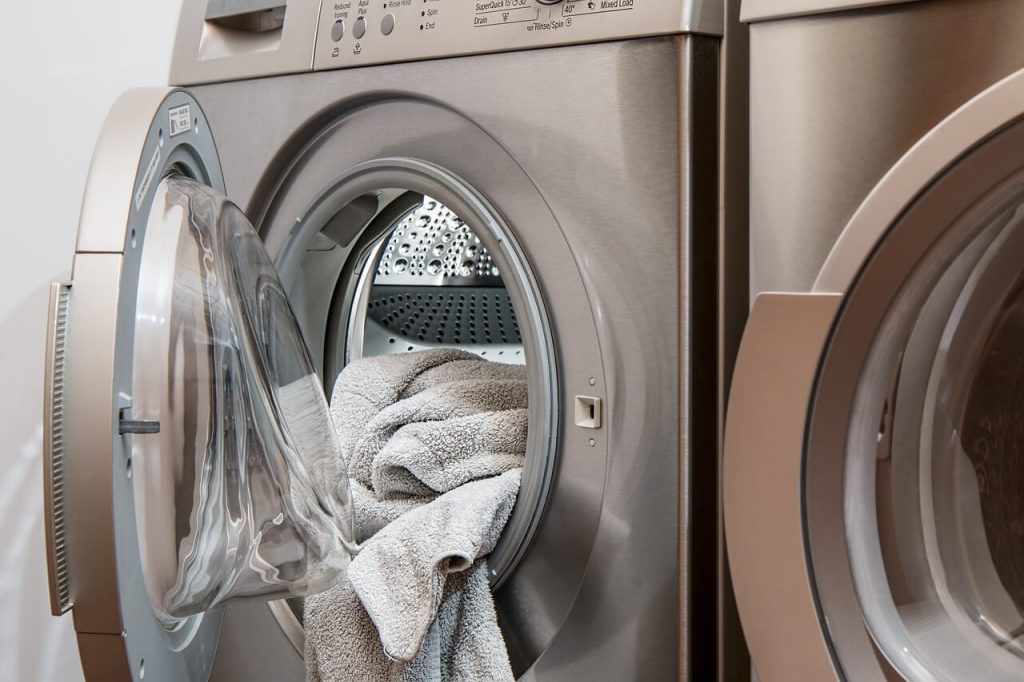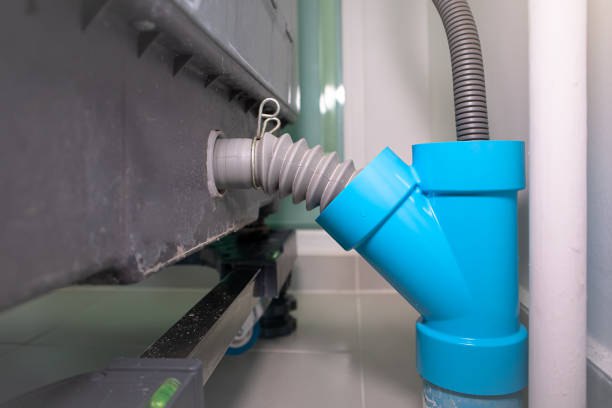Are you tired of the mysteries lurking within your laundry room? Have you ever wondered where all that water magically disappears after each spin cycle? Does a washing machine drain into sewer line?
Stay on the article as you’re about to uncover the hidden secret behind the curtains of cleanliness and the mysterious journey into the depths of the sewer line.
Get ready to witness the unveiling of this captivating plumbing phenomenon as we plunge into the realm of suds, spin, and sewage.

Does a Washing Machine Drain Into Sewer Line?
Yes, a washing machine does drain into a sewer line.
The drain hose from the washing machine is connected to the sewer line, which carries all of the wastewater from the home out to the main sewage system.
Even though many localities have moved away from it, in some areas, the sewer line is still connected to the washing machine drain.
This can be a problem if there is a blockage in the sewer line because the water from the washing machine will back up into your home.
If you have a blocked sewer line, you should contact a professional plumber to clear it.
Is It Allowed to Drain a Washing Machine Into a Sewer Line?
What you are asking is technically legal in most places. However, there are some disadvantages to discharging your washing machine’s wastewater into the sewer line.
First of all, it can cause problems with your septic system if you have one. Furthermore, it can raise the water level in your sewer line and potentially cause sewage to back up into your home.
Additionally, it can add excessive water volume and solids to the sewer system, which can lead to clogs and backed-up sanitary sewers. Finally, it wastes a lot of water that could be used for other purposes.
Is It Safe to Drain a Washing Machine Into a Sewer Line?
Yes, it is perfectly safe to drain a washing machine into a sewer line. There are no hazardous materials in a washing machine that would be harmful to your plumbing or the sewer system.
In fact, draining a washing machine into the sewer line is the recommended method for disposing of wastewater.
Draining a washing machine into the street gutter is not recommended because it can overload the storm drains and cause flooding.
Additionally, the wastewater from a washing machine can contain bacteria and other contaminants that can pollute local waterways.
If you must drain your washing machine into the yard, be sure to do so at least 10 feet away from any water sources (such as wells, ponds, or streams).
If you are concerned about the safety of draining a washing machine into the sewer line, you can consult with a professional plumber for more information.
They can advise you on how to best manage your wastewater and keep your home safe and sanitary.
Why Do You Sewer Back Up When You Use the Washing Machine?
There are a few reasons why your sewer might back up when you use the washing machine. One reason is that the washing machine can overload the sewage system and cause a backup.
Another reason is that the washing machine can send large amounts of dirty water directly into the sewer line, which can cause a backup.
Finally, there might be something wrong with your sewage system that is causing backups even without any extra load from the washing machine.
Where Should a Washing Machine Drain To?
The best place to drain a washing machine is outdoors. If you don’t have an outdoor drainage area, then the next best place is a floor drain in the basement.
Avoid draining a washing machine into a sink, as this can overload the plumbing and lead to clogs. Never try to drain a washing machine by dumping water down the toilet, as this can also cause clogs.

Conclusion
Does a washing machine drain into sewer line? From the depths of the sewer line to the gleaming whites of your laundry, the washing machine’s drainage mystery has been unraveled, leaving us in awe of the hidden wonders within our homes.
As you can see, many washing machines drain into the sewer line, but if you are unsure, it’s best to contact a licensed plumber and check whether your machine drains into the sewer line.







